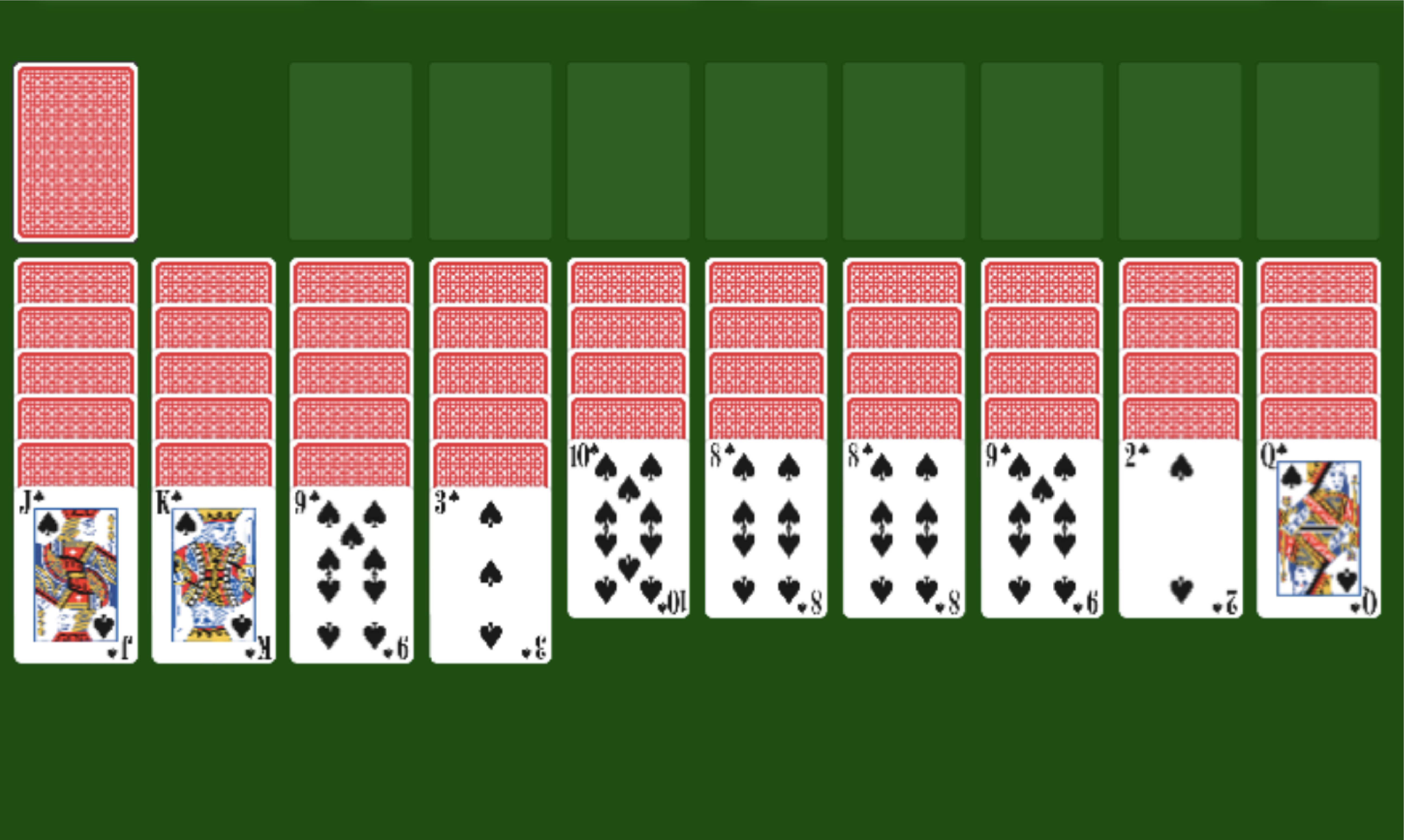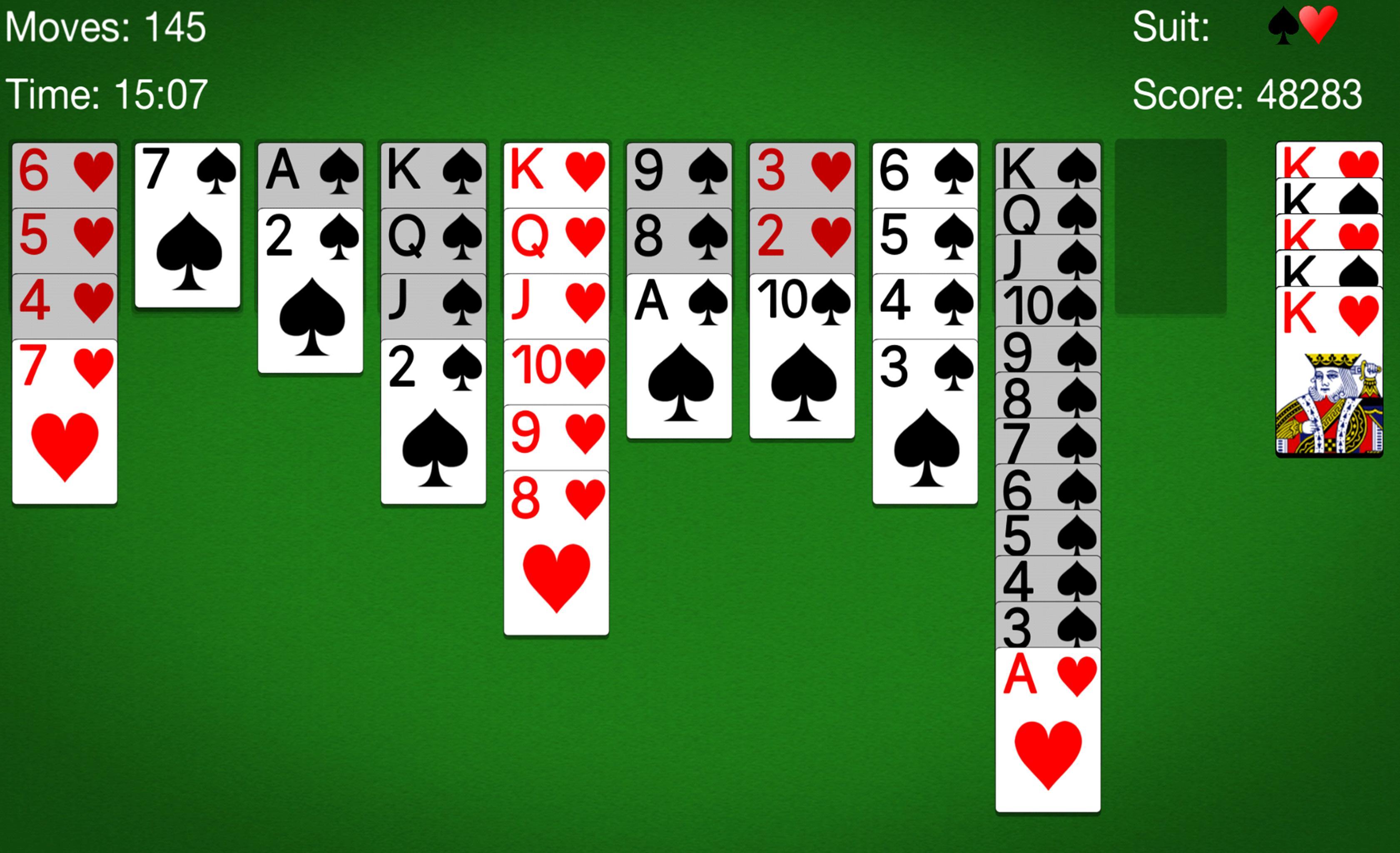Why Solitaire Is More Than Just A Card Game: A Deep Dive
Ever wondered why solitaire has become a timeless classic? It’s not just about flipping cards—it’s a game that combines strategy, focus, and a bit of luck. From its humble beginnings to its modern-day digital transformation, solitaire continues to captivate millions around the globe. But what makes it so special? Let’s dive in and find out.
Let’s be real, solitaire isn’t just some random card game you play when you’re bored. It’s a mental workout disguised as entertainment. Whether you’re a casual player or a hardcore enthusiast, this game has something for everyone. And hey, it’s not just about winning—it’s about the journey.
Think about it: a single deck of cards, no opponents, and your brain as the ultimate weapon. Solitaire challenges you to think critically, make quick decisions, and adapt to changing situations. Sounds familiar? That’s because life itself is kinda like solitaire—full of twists, turns, and surprises. So, let’s explore why solitaire deserves more credit than it gets.
Read also:Cooper Manning The Man Behind The Fame
Table of Contents
- The Fascinating History of Solitaire
- Different Types of Solitaire Games
- The Benefits of Playing Solitaire
- The Psychology Behind Solitaire
- Mastering Solitaire: Tips and Tricks
- The Rise of Digital Solitaire
- Solitaire Statistics: Who’s Playing It?
- Building a Solitaire Community
- The Future of Solitaire
- Final Thoughts on Solitaire
The Fascinating History of Solitaire
So, where did solitaire even come from? The origins of solitaire can be traced back to the 18th century, though no one’s exactly sure who invented it. Some say it started in Germany, while others claim it originated in Scandinavia. But one thing’s for sure—it wasn’t always called “solitaire.” Back in the day, it was referred to as “patience,” especially in Europe.
By the 19th century, solitaire had become a popular pastime among the upper class. Queen Victoria herself was reportedly a fan of the game. And let’s not forget its appearance in literature—authors like Charles Dickens and Leo Tolstoy mentioned solitaire in their works, adding a touch of cultural significance to the game.
Fast forward to the 20th century, and solitaire made its way into the digital world. When Microsoft Windows introduced the classic version of solitaire in the early ‘90s, it became a household name. Suddenly, everyone was playing it—not just card enthusiasts but also tech-savvy individuals. Talk about a game-changing moment!
How Solitaire Evolved Over Time
- 1700s: First mentions of solitaire in Europe.
- 1800s: Gains popularity among royalty and the elite.
- 1900s: Becomes a staple in literature and entertainment.
- 1990s: Digital revolution brings solitaire to the masses.
Different Types of Solitaire Games
Here’s the thing: solitaire isn’t just one game. There are tons of variations, each with its own set of rules and challenges. The most popular version is Klondike, which is what most people think of when they hear “solitaire.” But there’s so much more to explore.
For instance, Spider Solitaire is a beast of its own. With multiple decks and intricate rules, it’s perfect for players who love a good challenge. Then there’s FreeCell, which is all about strategy and planning ahead. And let’s not forget Pyramid Solitaire, where you need to match cards to remove them from the board.
Each type of solitaire offers a unique experience, catering to different skill levels and preferences. So whether you’re into quick games or long, strategic sessions, there’s a solitaire variation out there for you.
Read also:Melanie Olmstead Rising Star Of Hollywoods New Generation
Popular Solitaire Variations
- Klondike: The classic version everyone knows.
- Spider: A more complex and challenging option.
- FreeCell: Focuses on strategy and planning.
- Pyramid: A visually appealing and fast-paced game.
The Benefits of Playing Solitaire
You might think solitaire is just a game to pass the time, but it’s actually packed with benefits. First off, it’s great for improving cognitive skills. Every move you make requires you to think critically and evaluate the best possible outcome. Over time, this can enhance your decision-making abilities.
Plus, solitaire is a fantastic stress reliever. There’s something soothing about shuffling cards and organizing them into neat piles. It’s like a mini-vacation for your brain. And let’s not forget the sense of accomplishment you get when you finally win a tough round.
For older adults, solitaire can also help maintain mental sharpness. Studies have shown that engaging in mentally stimulating activities like card games can reduce the risk of cognitive decline. So next time someone tells you you’re wasting time playing solitaire, just smile and tell them you’re working on your brainpower.
Key Benefits of Playing Solitaire
- Improves cognitive skills and decision-making.
- Reduces stress and promotes relaxation.
- Enhances focus and concentration.
- Helps maintain mental sharpness in older adults.
The Psychology Behind Solitaire
Ever wondered why solitaire is so addictive? It’s all about psychology, baby. The game taps into our natural desire for achievement and reward. Every time you complete a move or win a round, your brain releases dopamine—the feel-good hormone. This creates a positive feedback loop that keeps you coming back for more.
But it’s not just about the dopamine rush. Solitaire also appeals to our need for control. In a world full of uncertainties, solitaire offers a sense of order and predictability. You know the rules, you know the cards, and you have complete control over the game. It’s like a little bubble of certainty in an uncertain world.
And let’s not underestimate the power of nostalgia. For many people, solitaire brings back fond memories of childhood or simpler times. Playing the game can evoke a sense of comfort and familiarity, making it even more appealing.
Why Solitaire Hooks Us In
- Triggers dopamine release with every win.
- Provides a sense of control and predictability.
- Elicits feelings of nostalgia and comfort.
Mastering Solitaire: Tips and Tricks
Alright, let’s talk strategy. If you want to become a solitaire pro, you’ll need more than just luck on your side. Here are a few tips to help you up your game:
First, always plan ahead. Don’t just make random moves—think about how each move will affect the rest of the game. Look for opportunities to free up cards and create open spaces. This will give you more options and increase your chances of winning.
Second, focus on building your foundation piles. These are the key to success in solitaire. The sooner you can start building them, the better. And don’t forget to alternate colors when stacking cards—it’s a crucial rule you can’t afford to ignore.
Finally, stay patient. Solitaire is a game of persistence. Sometimes you’ll hit a roadblock, but that doesn’t mean you should give up. Keep exploring your options and you might just find a solution.
Top Solitaire Strategies
- Plan your moves carefully and think ahead.
- Prioritize building foundation piles early on.
- Alternate colors when stacking cards for optimal results.
The Rise of Digital Solitaire
With the advent of smartphones and tablets, solitaire has taken on a whole new dimension. Gone are the days of shuffling physical cards—now you can play solitaire anytime, anywhere. And the best part? There are tons of apps and platforms offering a variety of solitaire games to choose from.
Digital solitaire also comes with added features like undo buttons, hints, and even multiplayer modes. These enhancements make the game more accessible and enjoyable for players of all skill levels. Plus, many apps offer leaderboards and challenges, adding a competitive edge to the experience.
But with great convenience comes great responsibility. Some people worry that digital solitaire lacks the tactile experience of playing with real cards. While that’s true, the benefits of accessibility and variety often outweigh the drawbacks. It’s all about finding what works best for you.
Advantages of Digital Solitaire
- Available anytime, anywhere on your device.
- Offers additional features like hints and undo buttons.
- Includes leaderboards and challenges for added fun.
Solitaire Statistics: Who’s Playing It?
Believe it or not, solitaire is one of the most played games in the world. According to a study by Microsoft, over 35 million people play solitaire every month. And that’s just on Windows alone! When you factor in mobile apps and online platforms, the numbers skyrocket even higher.
Interestingly, solitaire appeals to a wide range of demographics. While it’s often associated with older adults, younger generations are also jumping on the bandwagon. In fact, a survey conducted by a popular solitaire app revealed that over 60% of its users are under the age of 35.
So why is solitaire so universally loved? It’s simple, yet challenging. It’s accessible, yet rewarding. And let’s be honest, it’s just plain fun. Whether you’re a seasoned pro or a newbie, solitaire has something for everyone.
Fun Facts About Solitaire Players
- Over 35 million people play solitaire monthly on Windows.
- More than 60% of solitaire app users are under 35.
- Solitaire is played across all age groups and demographics.
Building a Solitaire Community
Here’s a cool thing about solitaire: it’s not just an individual game anymore. There’s a whole community of solitaire enthusiasts out there, sharing tips, strategies, and even hosting tournaments. Platforms like Reddit and Discord have dedicated solitaire groups where players can connect and discuss their favorite game.
Some solitaire apps even feature community-driven events, where players can compete against each other for prizes. These events foster a sense of camaraderie and friendly competition, making solitaire more than just a solo activity.
And let’s not forget the educational aspect. Many solitaire communities offer tutorials and resources for beginners, helping them improve their skills and enjoy the game even more. It’s all about sharing knowledge and supporting each other in the solitaire journey.
Ways to Join the Solitaire Community
- Participate in online forums and discussion groups.
- Engage in solitaire tournaments and events.
- Access tutorials and resources for skill improvement.
The Future of Solitaire
So, what’s next for solitaire? With advancements in technology, the possibilities are endless. Virtual reality solitaire, anyone? Imagine playing a fully immersive game where you can interact with the cards in a 3D environment. Sounds pretty cool, right?
Artificial intelligence is also making waves in the gaming world. Future solitaire apps could use AI to analyze your gameplay and provide personalized tips and suggestions. This would take the learning experience to a whole new level.
And let’s not forget the potential for cross-platform integration. Imagine being able to seamlessly transition from playing solitaire on your phone to your laptop, without losing your progress. It’s all about creating a seamless and connected experience for players.
Exciting Possibilities for Solitaire
- Virtual reality versions for immersive gameplay.
- AI-powered apps offering personalized tips and feedback.
- Cross-platform integration for seamless transitions.
Final Thoughts on Solitaire
In conclusion, solitaire is so much more than just a card game. It’s a mental workout, a stress reliever, and a source of endless entertainment. From its rich history to its modern-day digital transformation, solitaire continues

